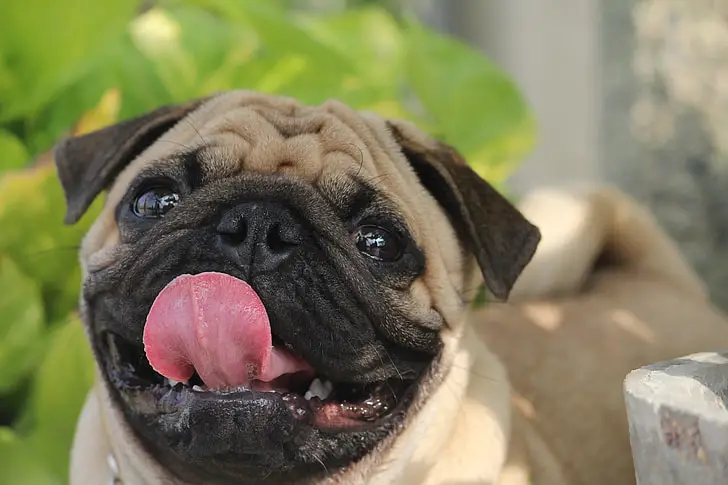Meeting the nutritional needs of your pug is essential for their overall health and well-being. Here’s a guide to providing a balanced diet for your pug’s optimal health:
- High-Quality Dog Food: Choose a high-quality commercial dog food that is specifically formulated for small breeds. Look for options that list meat as the primary ingredient and avoid foods with excessive fillers or artificial additives.
- Protein for Muscle Health: Pugs benefit from a diet rich in high-quality protein. Protein supports muscle development and maintenance. Look for dog foods with protein sources like chicken, turkey, beef, or fish. Ensure that protein levels are appropriate for your pug’s life stage, whether puppy, adult, or senior.
- Balanced Macronutrients: A balanced diet for pugs includes a proper ratio of macronutrients—protein, fats, and carbohydrates. Fats provide energy, support skin and coat health, and aid in nutrient absorption. Carbohydrates contribute energy and fiber for digestive health. Consult your vet to determine the ideal balance based on your pug’s specific needs.
- Healthy Fats for Coat and Skin: Pugs are known for their distinctive double coat. Including sources of healthy fats, such as omega-3 and omega-6 fatty acids, in their diet promotes a shiny coat and healthy skin. Fish oil supplements or foods containing fish can be beneficial.
- Moderate Caloric Intake: Pugs are prone to obesity, which can lead to various health issues. Monitor your pug’s caloric intake and adjust portion sizes based on their age, activity level, and overall health. Avoid overfeeding and provide treats in moderation.
- Limited Treats and Table Scraps: While it’s tempting to share your meals with your pug, limit treats and table scraps. Excessive treats can contribute to weight gain and nutritional imbalances. If you offer treats, choose healthy options specifically formulated for dogs.
- Avoid Certain Human Foods: Some human foods can be harmful to pugs. Avoid feeding them chocolate, caffeine, onions, garlic, grapes, raisins, and foods high in fat. Consult your vet if you have questions about specific human foods and their safety for pugs.
- Regular Feeding Schedule: Establish a consistent feeding schedule for your pug. Adult pugs typically benefit from two meals per day, while puppies may require more frequent feedings. Consistency helps regulate their digestive system and can aid in housebreaking.
- Hydration is Key: Ensure your pug has access to fresh, clean water at all times. Proper hydration is crucial for digestion, nutrient absorption, and overall health. Monitor their water intake, especially during hot weather or increased activity.
- Consult Your Veterinarian: Every pug is unique, and their nutritional needs may vary based on factors such as age, weight, and health status. Consult your veterinarian to create a personalized nutrition plan tailored to your pug’s specific requirements.
Remember that individual pugs may have unique dietary needs, so it’s important to monitor their weight, energy levels, and overall health. Regular veterinary check-ups can help ensure that your pug’s nutritional needs are being met for a happy and healthy life.


Leave a Comment